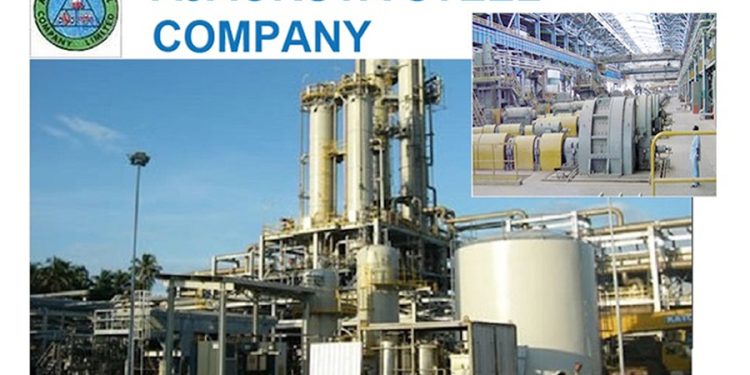The future of the Ajaokuta Steel Company Limited (ASCL), a once-promising industrial giant, hangs in the balance as the company faces the looming threat of disconnection from Nigeria’s national power grid due to an outstanding electricity debt of N1.27 billion incurred in just the first quarter of 2024.
The Nigerian Electricity Regulatory Commission (NERC) disclosed that ASCL and its host community have failed to make any payments toward the N1.27 billion owed to the Nigerian Bulk Electricity Trading Plc (NBET) and an additional N0.09 billion to the Market Operator (MO) for electricity supplied between January and March 2024.
This is not the first time ASCL has found itself in this predicament. The steel company, classified as a “special customer,” has a long history of non-payment, which has repeatedly placed it at odds with electricity suppliers and regulators. In January 2024, the Transmission Company of Nigeria (TCN) disconnected ASCL from the national grid due to an accumulated debt of N33 billion owed to NBET and other service providers. Despite this drastic measure, ASCL’s financial obligations remain unfulfilled, putting it at risk of further punitive actions.
The NERC has expressed its deep concern over ASCL’s continued failure to settle its electricity bills, warning that the situation could lead to a total disconnection from the national grid. Such a disconnection would further cripple the already moribund steel company, which has struggled for decades to achieve its initial promise of becoming a linchpin of Nigeria’s industrial sector.
Government Intervention Urgently Needed
Given the strategic importance of Ajaokuta Steel to Nigeria’s industrial aspirations, there have been calls for urgent government intervention to prevent the company from being completely cut off from the grid. The NERC has communicated the need for federal intervention to relevant authorities, highlighting that the financial challenges faced by ASCL are not just a commercial issue but one of national economic significance.
The Federal Government has previously invested heavily in ASCL, seeing it as a critical asset for Nigeria’s economic diversification and industrialization goals. However, the company’s recurring financial difficulties and inability to pay for essential services like electricity have raised questions about its viability and the effectiveness of past interventions.
Broader Implications for Nigeria’s Industrial Sector
The situation at Ajaokuta Steel underscores broader challenges facing Nigeria’s industrial sector, particularly the struggle to maintain large-scale industrial projects in the face of financial constraints and inadequate infrastructure. ASCL’s inability to meet its electricity payment obligations reflects deeper systemic issues, including inefficient management, a lack of consistent investment, and the broader economic difficulties that have plagued Nigeria in recent years.
The potential disconnection of ASCL from the national grid would not only impact the company and its host community but could also have wider repercussions for Nigeria’s industrial policy. It raises critical questions about the sustainability of government-owned enterprises and the need for more robust frameworks to support large-scale industrial operations.
Looking Ahead: What Needs to Be Done
As Ajaokuta Steel teeters on the brink of disconnection, stakeholders are calling for a comprehensive review of the company’s operations and financial management. Some experts suggest that a public-private partnership model might offer a viable solution, bringing in much-needed expertise and capital to revitalize the steel company. Others argue for a more direct government bailout, given the strategic importance of ASCL to Nigeria’s industrial future.
In the short term, however, the priority is to address the immediate threat of disconnection. Without a quick resolution, ASCL’s operational capabilities could be further compromised, setting back any progress made toward its revival. The Federal Government, in conjunction with relevant agencies, must act swiftly to ensure that Ajaokuta Steel remains connected to the grid and that a sustainable solution is found to address its mounting debts.















